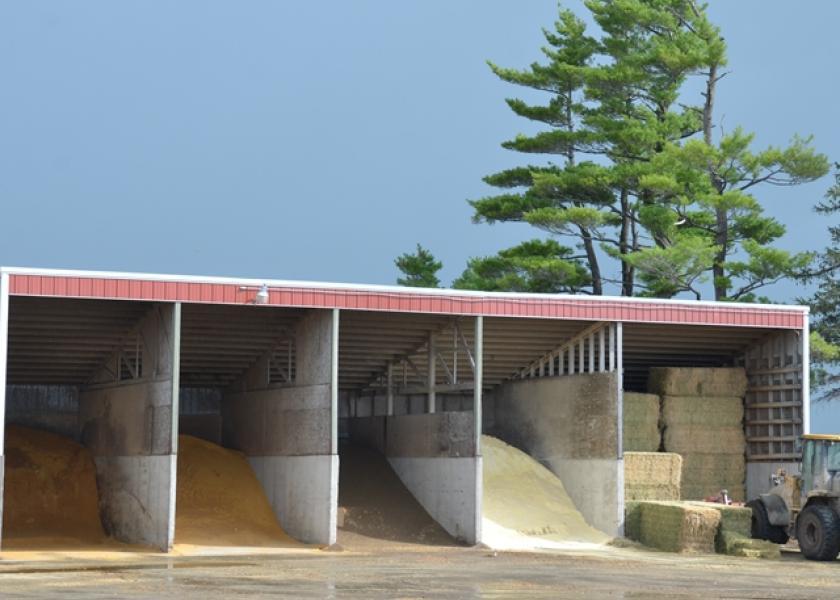5 Questions to Ask Before You Buy a New Feed Additive

The current market for feed additives is estimated to exceed $40 billion dollars, out of a total global feed market of $500 billion. With so much money being spent on feed additives it is surprising that dairy farmers don’t take more care over what they buy. When I ask them why the answers vary from ‘my nutritionist makes those choices’, to ‘they were the last salesperson I met’, or ‘I bought it in order to get access to another service I needed’.
The time to ask these questions has never been critical. Feed costs are at record highs and a new wave of feed additives are on its way into the market, particularly those to address methane. Methane blockers include the market leader Bovaer from DSM, Agolin from Alltech, Mootral Ruminant, Protect from Proagni, innoculants from Agrovive, and a host of red seaweed (Asparagopis Taxiformis) feed ingredients and each bring new science and new investment criteria to the decision.
There must be a better way to choose between all these options. Consider asking your salesperson, advocate, or consultant these five simple questions.
- Do we know the ‘mode of action’, or how it works?
Surprisingly a lot of feed additives are surprisingly unclear on their mode of action. Most people, and producers can’t separate the facts from the mumbo jumbo. As a result, we ask a consultant, professor, or PhD if they understand how it works. Recently I had an experience where the company explained that ‘even Nobel prize winners couldn’t get their head around the tech’. Honestly, I expect any supplier to use simple language. If your feed additive or feed ingredients provider can’t explain what they are selling in a few understandable words, then probably best to reconsider your choice.
- Does it work consistently?
It might be surprising to find how often new products fail, or only work some of the time. Who wants a nutritional supplement that works on Mondays, Wednesday, and the weekend? Why? The conditions under which the product performs can be more limited than you thought. Management, weather may influence success, but these factors are not easy to change. The interaction with genetics, and other feed ingredients is more interesting because it’s more controllable. Either way expecting nutritional interventions to give the same result is naïve. It doesn’t work in humans with drugs or diets, why would it be any different with our animals?
- Is it stable?
The effect of moisture and temperature in feed, especially if pelleted, often negatively affects the activity of live organisms, or heat sensitive ingredients. This is most dramatic with probiotics, enzymes, yeast, essential oils, etc. It becomes even more of an issue if the feed is pelleted or during the conditioning phase in the feed mill. There is no point purchasing a product that becomes inactivated or dies before it gets into the animal. Better to ask the question before you buy!
- Is it safe?
There is more willingness to use ingredients in the feed that might be toxic to animals (at higher levels usually) or for humans than you would expect. Formaldehyde is an example, since it reduces pathogens such as salmonella, but metal-based trace minerals such as copper and zinc are another. Some of these ingredients may be safe in themselves but risk being contaminated with PCBs, Dioxins and Heavy metals. Always ask the question what the risks are to animals and humans before trying something new. You might be surprised by the answer.
- Is it consumer acceptable?
The role of the consumer, or what I have come to learn is the ‘prosumer’ is wide and varied. Prosumers are consumers who don’t just buy milk or dairy products based on the price, safety and availability but based on their aspirations, expectations, values and how they want to be considered by others. While Prosumers are clear in their demands, they represent 20-30% of total consumers, and even they can be inconsistent in their demands. Examples abound with the most recent being how Covid consumers moved from wanting the use of plastic banned from supermarkets, to being supplanted by needing their food doubled wrapped for protection. Prosumers take to social media to express unhappiness when they don’t get it! Understanding the demands of prosumers to inform your choice of feed additive is difficult but perhaps rephrase the question. ‘If I use this feed additive, will it both solve my problem and be consumer acceptable’ or is it just kicking the can down the road for another day when more questions will be asked.
No one said it was easy.
Since the days of the first feed additives producers have been wary of salespeople. I believe that a healthy dose of common sense, combined with an appreciation of the value of science, armed with these 5 questions will be the answer. Let me know how you get on!







